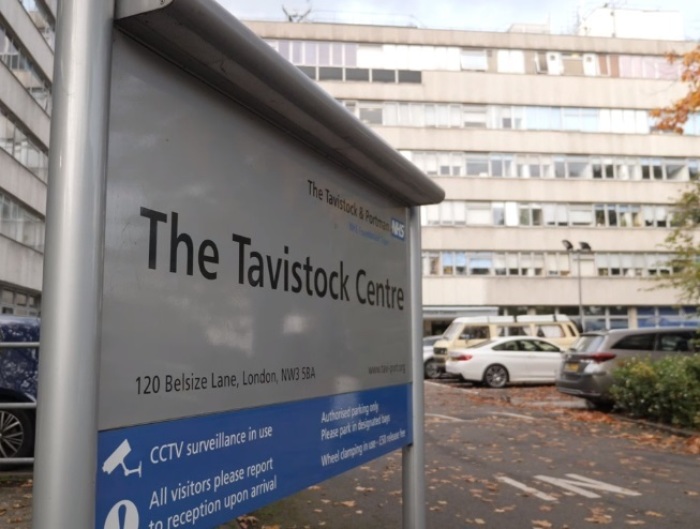Tavistock gender clinic permits unlawful acquiring of consent from minors, lawyer tells court

A gender clinic in the United Kingdom this week appealed a court ruling that held that minors under 16 cannot consent to experimental puberty-blocking drugs as part of a medicalized gender transition.
Lawyers for the London-based Tavistock and Portman NHS Trust, which runs England National Health Service's only gender identity clinic for children, urged an appeals court this week to overturn the ruling from the U.K. High Court of Justice. Two days of appeals hearings were held this week.
According to The Guardian, Tavistock’s legal team led by Fenella Morris QC argued the Dec. 1 ruling “undermined the entitlement of children under the age of 16 to make decisions for themselves when they have been assessed individually as competent to do so by their treating clinician."
Additionally, they argued that the ruling “intruded into the realm of decisions agreed upon by doctors, patients and their parents, where the court had not previously gone."
The high court's judicial review was in part brought about by Keira Bell, a 24-year-old woman who identified as transgender during her teen years.
Bell maintained in the case that she wasn't adequately informed about, nor capable of understanding, the long-term consequences to her health and that she was making rash decisions as a troubled youth.
The high court sided with Bell and held that children under the age of 16 are unable to make such decisions given the risks under the relevant standard for medical consent in British law.
Tavistock's legal team argued that the puberty blockers are “fully reversible” and “not experimental," a claim that many critics have contested.
Reports state that attorneys for Bell repeated their arguments in court that young trans-identifying people are not capable of giving consent. Bell's legal team, led by attorney Jeremy Hyam, argued that puberty blockers are “a controversial and ‘quite possibly unique’ experimental treatment about which there are many uncertainties."
They also argued that the Tavistock clinic "permits or encourages" illegal behavior relating to obtaining consent from such young people.
“The way that consent was being obtained was illegal,” Hyam said, according to Pink News.
Hayam argued that children need to be able to "understand the bigger picture" when it comes to "what is coming down the line” if they take puberty blockers.
He added that youth might not be concerned about their sexual relationships, but that could likely change years later. Therefore, at age 12 or 13, it is "unlikely or very unlikely" that giving consent to the experimental drugs is possible.
Earlier this year, in what some say amounted to a partial reversal of the initial ruling, the court held that parents could consent on behalf of their child for puberty blockers without first gaining a judge's approval.
Intervening in the appeal in support of the clinic are several organizations, such as The Leeds Teaching Hospital Trust and University College London Hospital, neither of which were part of the judicial review last year.
An attorney for the hospitals said that whether or not a child is to be prescribed puberty blockers is determined by a pediatric endocrinologist. The Tavistock clinicians merely refer the patients.
“The document being challenged relates to the Tavistock, and that is no more than a consent procedure for referring patients to the Trusts,” judges were reportedly told.
“It does not purport to be the document used by an endocrinologist to determine if there is consent under Gillick.”
What is known as Gillick competency — the standard for youth medical consent in the U.K. — centers around a 1985 case that was decided in the House of Lords, Gillick v. West Norfolk and Wisbech Area Health Authority. Lawmakers debated if a child younger than 16 could be prescribed contraception by and with the discretion of a doctor, without parental consent.
The Tavistock appeal comes amid greater degrees of scrutiny worldwide about the safety and efficacy of transgender medicalization.
As of April 1, the Karolinska Hospital in Sweden said, citing the 2020 Bell ruling, that it would no longer prescribe puberty blockers to patients under 16.
In April, lawmakers in Arkansas overrode the veto of Gov. Asa Hutchinson on a bill that prohibited the experimental hormonal and surgical practices on minors in that state. The American Civil Liberties Union filed a lawsuit against the state, arguing that the move is unconstitutional.
Last week, the California-based Center for Bioethics & Culture Network released the documentary "Trans Mission: What's the Rush to Reassign Gender?" The film highlights the Bell ruling and mentions some Tavistock staff members' concerns about how patients suffering from gender dysphoria are being treated. The documentary notes that the U.S. government has never formally approved puberty blockers for this purpose.





























